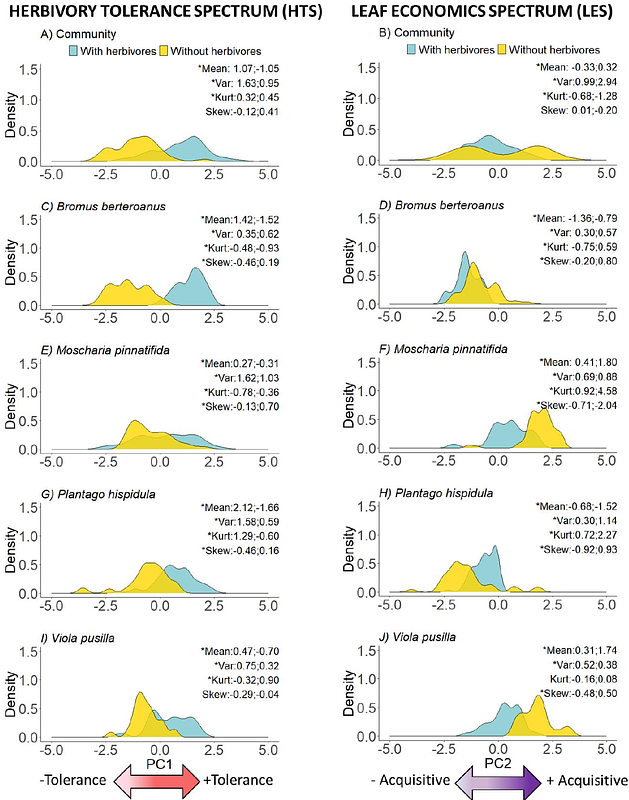WITHIN AND ACROSS SPECIES VARIATION IN PLANT TRAITS IN RESPONSE TO LONG-TERM EXPERIMENTAL HERBIVORE EXCLUSION IN A SEMI-ARID SHRUBLAND

WITHIN AND ACROSS SPECIES VARIATION IN PLANT TRAITS IN RESPONSE TO LONG-TERM EXPERIMENTAL HERBIVORE EXCLUSION IN A SEMI-ARID SHRUBLAND
Fernandez-Murillo, M. d. P.; Alfaro, F. D.; Kelt, D. A.; Meserve, P. L.; Gutierrez, J. R.; Troncoso, A. J.; Craven, D.
Abstract1) Herbivores shape multiple facets of biodiversity patterns and ecosystem processes, yet are increasingly threatened by habitat loss and climate change. Here, we use a long-term experiment to examine how excluding herbivores, a proxy for biodiversity loss, restructures dominant plant ecological strategies within and across species. 2) We measured twelve functional traits of four dominant annual plant species in the semi-arid shrublands of Chile. We evaluated changes in trait distributions within and across species and changes in the coordination between above- and below-ground strategies in response to vertebrate herbivore exclusion. 3) Our study reveals three dominant ecological strategies characterizing trait variation within and across species, with increased coordination between above- and below-ground strategies in the presence of herbivores. Our results show that herbivores induce shifts in ecological strategies, leading to conservative resource use, increased herbivore tolerance, reduced collaboration with soil microorganisms, and greater intraspecific diversity, facilitating species coexistence. 4) We empirically demonstrate how herbivores shape ecological strategies within and across species, and prove that the absence of herbivores alters the diversity of adaptation strategies of plants and leads to a decoupling of resource acquisition strategies above- and below-ground. These results advance understanding of annual plant responses to herbivore loss.


